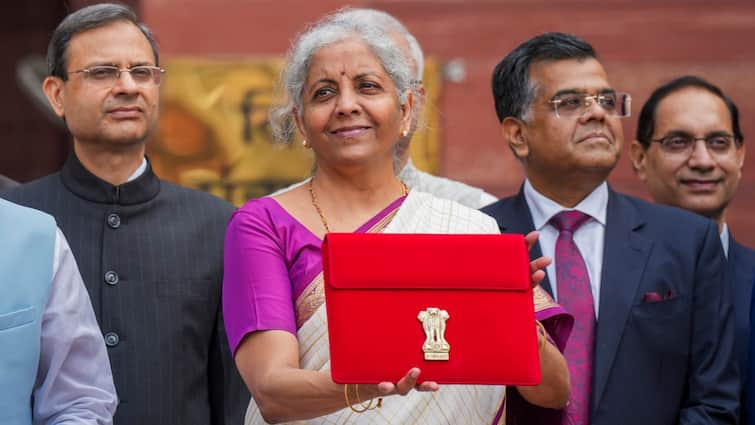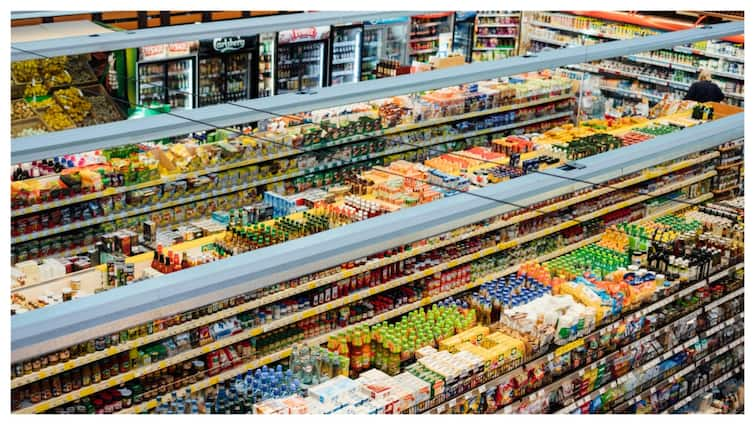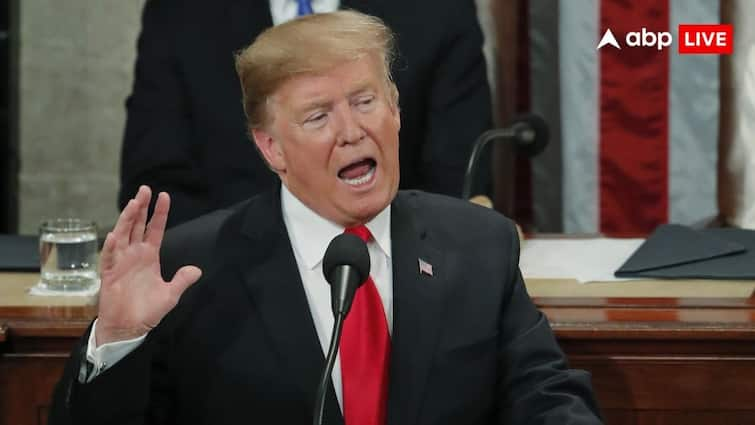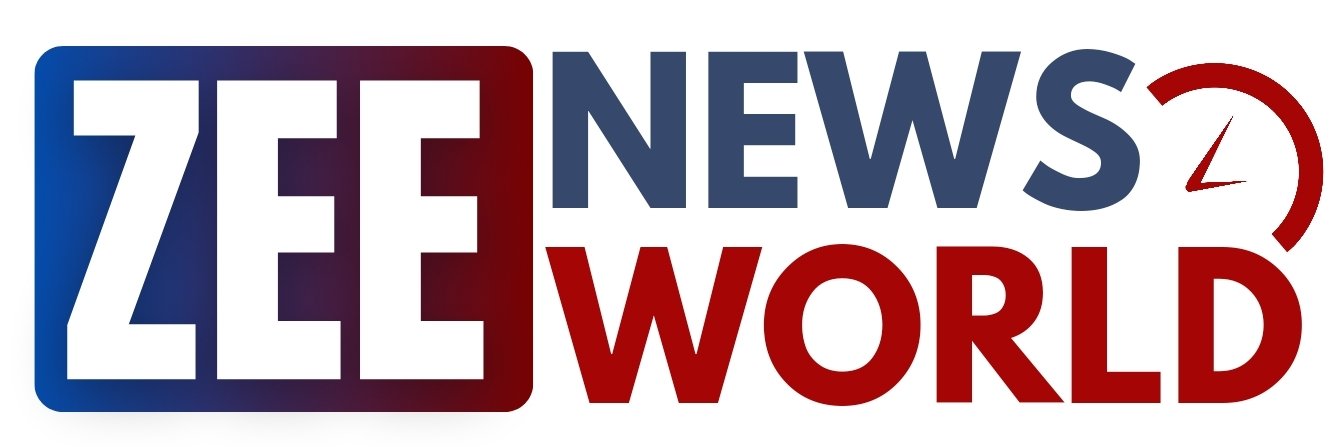Budget Session Set To Begin On Jan 31 With Prez Address, FM Nirmala Sithraman To Present Allocations On Feb 1
The Budget Session of Parliament will be held from January 31 to April 4, with Finance Minister Nirmala Sitharaman set to present her eighth consecutive budget on February 1. In keeping with tradition, the session will begin with President Droupadi Murmu's address to a joint sitting of the Lok Sabha and Rajya Sabha on January 31, followed by the presentation of the Economic Survey. The first part of the session will have nine sittings from January 31 to February 13, during which Prime Minister Narendra Modi will respond to the Motion of Thanks on the President's address, and Sitharaman will reply to discussions on the Union Budget. Parliament will then go into recess to scrutinise the budget proposals before reconvening on March 10 to deliberate on the demands for grants of various ministries and finalise the budgetary process. The session will conclude on April 4, comprising a total of 27 sittings. #BudgetSession2025 ||????The Budget Session of #Parliament will convene on 31st January. ????Union Budget will be presented on 1st February 2025. ????The first part of the Budget Session will conclude on 13th February 2025. ????The second part of the session will commence on… pic.twitter.com/EHzH14At9O — All India Radio News (@airnewsalerts) January 17, 2025 This will be Sitharaman’s eighth budget—six annual and two interim—surpassing former Prime Minister Morarji Desai’s record for the most budgets presented. Since 2017, the Union Budget has been presented on February 1, allowing policy announcements to take effect before the start of the financial year in April. However, before 1997, the budget was usually presented on the last working day of February at 5 pm. Even as the Budget presentation is scheduled for Saturday, the stock market would remain open to operate during regular hours to enable investors to respond to the budget announcements. ALSO READ | Govt Expected To Announce Personal Income Tax Relief In Budget 2025: ICRA ICRA’s Budget Expectations Over Capital Expenditure, Income Tax Relief Ratings agency ICRA has suggested that the government should target capital spending of Rs 11 lakh crore for the next fiscal while also providing inflation-adjusted relief on personal income tax to boost consumer spending. ICRA Chief Economist Aditi Nayar noted that last year’s record budgeted capital expenditure of Rs 11.11 lakh crore is likely to fall short by around Rs 1.4 lakh crore, and the upcoming budget should retain last year’s target while ensuring that government borrowing remains within reasonable limits. She highlighted that capex spending from April to November 2024 stood at Rs 5.13 lakh crore, which is 46 per cent of the Rs 11.11 lakh crore target. “We are looking at a large shortfall in the current fiscal. For next year, we are hoping that we will get fiscal space to prioritise capex… For FY26, based on the revenue numbers, a fiscal deficit of 4.5 per cent of GDP will be quite reasonably achieved. That would allow us Rs 11 trillion of capex, a growth of 11-12 per cent over the feasible number for FY25,” Nayar told news agency PTI. She further cautioned that setting a higher capex target might lead to larger borrowings and a higher fiscal deficit, which could increase yields. Instead, she suggested that the 2025-26 Budget should set a realistic capex figure and, if needed, later adjust it through supplementary demands for grants. ICRA has projected a fiscal deficit of 4.8 per cent of GDP for the current fiscal and 4.5 per cent for FY26. The ratings agency also expects GDP growth of 6.5 per cent in both the current and the next fiscal years. Discussing expectations for personal income tax, Nayar suggested that some adjustments to tax slabs and rates could provide a morale boost for urban taxpayers. “That is what the budget can bring in without too much revenue loss. Inflation does eat away disposable income. It is not an unfair ask (tax relief),” she said, as quoted by PTI. However, she also stressed the need to maintain the tax base, saying: “Two things will be important—one, not to have too much revenue loss, and second, not to lose too many taxpayers from the tax net.” She proposed that either a revision of tax rates at the lower slab or an inflation-adjusted restructuring of slabs could offer some relief while ensuring a steady income tax base. With expectations of steady rural consumption and rebounding urban consumption once food inflation eases, Nayar suggested that small tax concessions could improve sentiment without causing significant revenue losses.

The Budget Session of Parliament will be held from January 31 to April 4, with Finance Minister Nirmala Sitharaman set to present her eighth consecutive budget on February 1. In keeping with tradition, the session will begin with President Droupadi Murmu's address to a joint sitting of the Lok Sabha and Rajya Sabha on January 31, followed by the presentation of the Economic Survey.
The first part of the session will have nine sittings from January 31 to February 13, during which Prime Minister Narendra Modi will respond to the Motion of Thanks on the President's address, and Sitharaman will reply to discussions on the Union Budget. Parliament will then go into recess to scrutinise the budget proposals before reconvening on March 10 to deliberate on the demands for grants of various ministries and finalise the budgetary process. The session will conclude on April 4, comprising a total of 27 sittings.
#BudgetSession2025 ||
????The Budget Session of #Parliament will convene on 31st January.
????Union Budget will be presented on 1st February 2025.
????The first part of the Budget Session will conclude on 13th February 2025.
????The second part of the session will commence on… pic.twitter.com/EHzH14At9O — All India Radio News (@airnewsalerts) January 17, 2025
This will be Sitharaman’s eighth budget—six annual and two interim—surpassing former Prime Minister Morarji Desai’s record for the most budgets presented. Since 2017, the Union Budget has been presented on February 1, allowing policy announcements to take effect before the start of the financial year in April. However, before 1997, the budget was usually presented on the last working day of February at 5 pm.
Even as the Budget presentation is scheduled for Saturday, the stock market would remain open to operate during regular hours to enable investors to respond to the budget announcements.
ALSO READ | Govt Expected To Announce Personal Income Tax Relief In Budget 2025: ICRA
ICRA’s Budget Expectations Over Capital Expenditure, Income Tax Relief
Ratings agency ICRA has suggested that the government should target capital spending of Rs 11 lakh crore for the next fiscal while also providing inflation-adjusted relief on personal income tax to boost consumer spending.
ICRA Chief Economist Aditi Nayar noted that last year’s record budgeted capital expenditure of Rs 11.11 lakh crore is likely to fall short by around Rs 1.4 lakh crore, and the upcoming budget should retain last year’s target while ensuring that government borrowing remains within reasonable limits. She highlighted that capex spending from April to November 2024 stood at Rs 5.13 lakh crore, which is 46 per cent of the Rs 11.11 lakh crore target.
“We are looking at a large shortfall in the current fiscal. For next year, we are hoping that we will get fiscal space to prioritise capex… For FY26, based on the revenue numbers, a fiscal deficit of 4.5 per cent of GDP will be quite reasonably achieved. That would allow us Rs 11 trillion of capex, a growth of 11-12 per cent over the feasible number for FY25,” Nayar told news agency PTI.
She further cautioned that setting a higher capex target might lead to larger borrowings and a higher fiscal deficit, which could increase yields. Instead, she suggested that the 2025-26 Budget should set a realistic capex figure and, if needed, later adjust it through supplementary demands for grants.
ICRA has projected a fiscal deficit of 4.8 per cent of GDP for the current fiscal and 4.5 per cent for FY26. The ratings agency also expects GDP growth of 6.5 per cent in both the current and the next fiscal years.
Discussing expectations for personal income tax, Nayar suggested that some adjustments to tax slabs and rates could provide a morale boost for urban taxpayers.
“That is what the budget can bring in without too much revenue loss. Inflation does eat away disposable income. It is not an unfair ask (tax relief),” she said, as quoted by PTI. However, she also stressed the need to maintain the tax base, saying: “Two things will be important—one, not to have too much revenue loss, and second, not to lose too many taxpayers from the tax net.”
She proposed that either a revision of tax rates at the lower slab or an inflation-adjusted restructuring of slabs could offer some relief while ensuring a steady income tax base.
With expectations of steady rural consumption and rebounding urban consumption once food inflation eases, Nayar suggested that small tax concessions could improve sentiment without causing significant revenue losses.
What's Your Reaction?











































